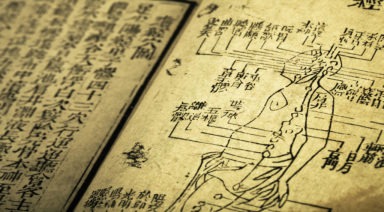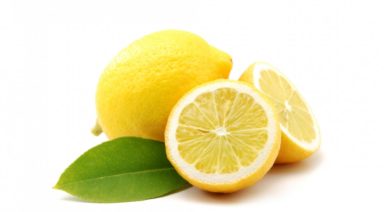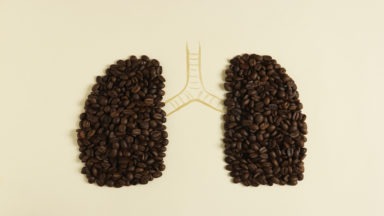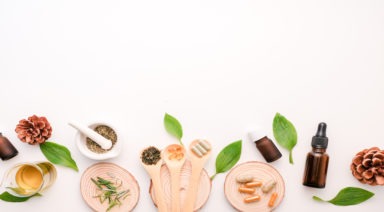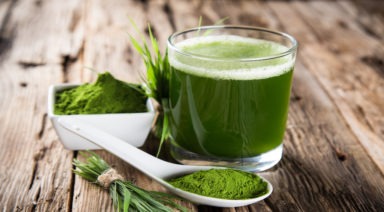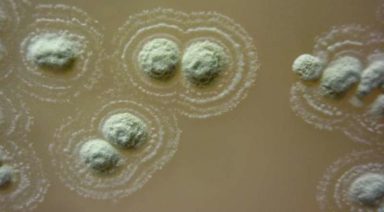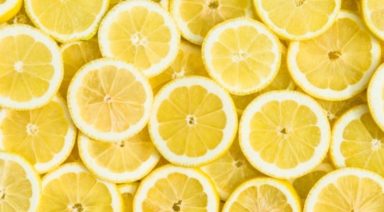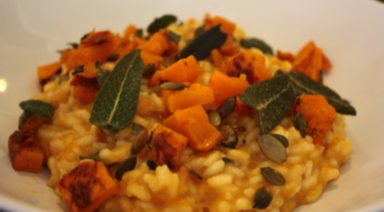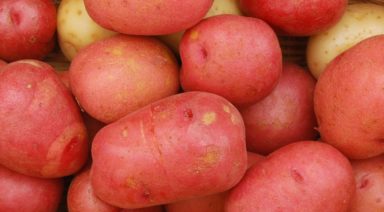What Is Ayurvedic Medicine And How Can It Help Me?
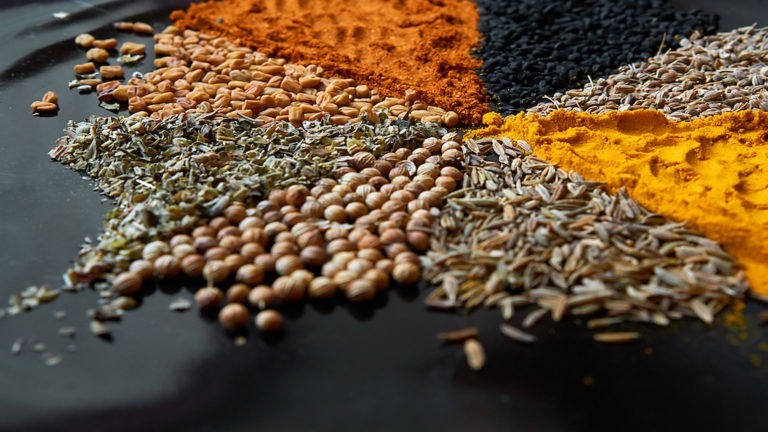
The word Ayurveda is Sanskrit, based on two words, Ayur, which means “life” and Veda, which refers to knowledge. Also known as “Ayurvedic Medicine,” this ancient medical science can be traced to around 6000 BCE. It was most likely the ancient masters, in the lineage of Babaji, who were the original teachers of Ayurveda’s soul-expanding and holistic healing methods.
Ayurveda is based on the premise that wellness depends on the balance and peacefulness of mind, heart, body, and spirit. By focusing on promoting wholeness and health (instead of fighting disease), Ayurvedic medicine is known to reinvigorate muscles, bones, cells, and souls through a variety of healing herbs and modalities. It is often called “The Mother Of All Healing.”
The History of Ayurveda
Compared to today’s Western medicine, Ayurveda is over 6000 years its senior. Both spiritual and practical, Ayurvedic medicine was originally an oral tradition that was taught by masters from a variety of disciplines. The goal of Ayurveda is to bring the patient into harmony with the divine aspects of the Self and the Universe.
The inception of Ayurveda is unknown, yet many believe that it was born in The Vedas, and originally composed in Sanskrit. These ancient Indian writings were considered to be “Apaureseya” or “not of man; eternal, superhuman, and without authorship.” The four primary Veda collections include Rig Veda, Sama Veda, Yajur Veda, and Atharva Veda.
Ayurvedic medicine was first promoted in the United States in the early 1970s, most likely by the Maharishi Mahesh Yogi organization of Transcendental Meditation. It was eventually popularized by notable healers and doctors, including Dr. Vasant Lad, Dr. Andrew Weil, Robert Svoboda, Nancy Lonsdorf, John Douillard, and Dr. Jay Apte. While some of these luminaries have taught Ayurveda for more than 30 years, there are many highly qualified Ayurvedic counselors and practitioners in the United States and throughout the world.
Today, in addition to local, state, and regional organizations, practitioners can join The National Ayurvedic Medical Association, which seeks to “preserve, protect, promote and advance the consciousness-based philosophy, knowledge, science, and practice of Ayurveda for the benefit of all beings.”
Ayurveda’s Three Doshas
When Ayurvedic practitioners prescribe healing herbs and modalities, they base their prognoses and treatments on an individual’s doshas or doshic makeup. There are three doshas, Vāta, Pitta, and Kapha, each of which refers to specific sets of physical, emotional, mental, and spiritual attributes. An individual may have one or any combination of these doshas. When our doshas are in alignment, we experience good health. When our doshas are out of balance, we might experience discomfort, pain, or disease.
Vāta Dosha contains the elements of ether and air. Vata is responsible for our vitality, energy, flow, movement, nerves, breath, speech, levels of anxiety, circulation, and digestion. Vata-dominant people are active, excitable, sometimes anxious, enthusiastic, creative, clever, and open to new adventures. If you’re Vata, you might have problems sleeping, feel nervous regularly, and occasionally forget to eat. You might one day develop arthritis, and in the meantime, tend to be the life of the party.
Pitta Dosha contains fire and water. Pitta is responsible for our hormones, hunger, intelligence, attitudes, and organizational abilities. If you’re Pitta-dominant, you might be clear of mind and heart, competitive, practical, organized, a lover of teaching, and tend to feel immediately rejuvenated when spending time outdoors. You might even feel fits of anger or rage, most notably when you haven’t eaten protein in a while. If you forget to relax, you might develop sleeping disorders. The order of the day for Pitta-folks is to relax, keep your environment cooler versus hotter, and avoid extremes, especially when exercising.
Kapha Dosha is the embodiment of earth and water. Given these grounded elements, Kapha-folks tend to be heavy, slow, dense, sturdy, and lovers of routine. Kaphas are generally lovable, playful, and patient. If you’re Kapha and you’re having a bad week or month, you might eat or sleep too much, hold grudges, feel depressed for long periods, and gain too much weight. You also might develop diabetes. Regardless of the physical challenges that Kapha people tend to have, they gravitate toward a grounded life and financial abundance.
Ayurveda’s Eight Canonical Components
Ayurveda treatises divide medicine into eight components, first found in the ancient Sanskrit epic, “The Mahābhārata.” They are as follows:
Kāyachikitsā: the basis for all general medicine focused on the human body
Kaumāra-bhṛtya (Pediatrics): this component is focused on prenatal and postnatal care of the mother and her children, contraception methods, allowing the emergence of a child’s gender, intelligence, and constitution, childhood diseases, and birthing processes
Śalyatantra: this is where we learn about surgery, medical technological advancements, extraction methods for objects and ideologies that cause the body and soul to feel imbalanced
Śhālākyatantra: treatments that heal problems associated with the ears, eyes, nose, mouth, and throat
Bhūtavidyā: modalities designed to soothe and extract negative and possessing spirits, and the healing of people with broken minds and spirits, either resulting from soul-possession or other challenges
Agadatantra/Vishagara-vairodh Tantra: refers to the toxins and antidotes in the categories of epidemics, poisoned animals, and the bacterial and viral infections found in animals, vegetables, and minerals
Rasāyantantra: the study of body/mind/soul rejuvenation and the tonics, supplements, and modalities that increase lifespan, intellect, emotional expression, heart-expansion, and physical strength
Vājīkaraṇatantra: this category is focused on the supplements, herbs, aphrodisiacs, modalities and other treatments that increase vitality, sexual wholeness, sexual healing, reproduction, conception, and the health of semen, eggs, and sex organs; it also addresses fertility, infertility, and spiritual development related to the transmutation of sexual energy into spiritual energy
Best Ayurvedic herbs for health and longevity
Here is a shortlist of some of the most popular, healing Ayurvedic (Indian) herbs and spices:
Amalaki: reduces inflammation, alleviates pain, detoxifies organs, sharpens memory, and protects against the development and spread of cancer
Ashwagandha: reduces blood sugar levels, improves cardiovascular and immune health, reduces stress and anxiety, reduces depression, supports both testosterone and fertility, increases muscle strength, supports the nervous and endocrine systems
Triphala: powerful anti-inflammatory and antioxidant, protects against cancer and chronic diseases, reduces constipation, improves dental health, helpful for weight loss
Guggal (Guggalu): anti-inflammatory, can act as a steroid, neuroprotective, antioxidant, lowers cholesterol, relieves arthritis pain, acne treatment, weight loss, reduces eye inflammation, improves the activity of thyroid enzymes, protective of the kidneys, liver, brain, and heart
Neem: treats eye, nose and stomach disorders, leprosy and skin ulcers, cardiovascular disease, fever, diabetes, and liver problems
Boswellia (Frankincense): anti-inflammatory, improves joint and musculoskeletal health, reduces the effects of osteoarthritis and asthma, reduces pain and discomfort associated with Inflammatory Bowel Disease (IBD and IBS)
Ginger: helps digestion, reduces nausea, menstrual pain, and morning sickness, improves digestion, helps the body heal during the flu or cold, acts as an anti-inflammatory, lowers blood sugars, improves heart health, reduces muscle pain and soreness, helps to prevent cancer, reduces cholesterol, improves brain function, fights infections
Brahmi: full of antioxidants, strengthens the immune system, reduces stress and anxiety, reduces symptoms of Alzheimer’s, improves intelligence and IQ, helpful to people with arthritis, regulates blood sugar, helpful in healing dandruff and rejuvenating the scalp, helpful to the brain
Gotu Kola: longevity herb, improves cognition and memory, reduces anxiety and depression, improves circulation, reduces joint pain, expedites the healing of wounds, helpful to the liver and kidneys
Mulethi (Licorice Root): improves the health of respiratory tract, boosts immunity and digestion, anti-inflammatory, eases menopausal symptoms
Turmeric (Curcumin): anti-inflammatory, improves heart health, improves body’s response to cancer and arthritis, may prevent or delay diabetes and Alzheimer’s, can act as an antidepressant, reduces free radicals and eye degeneration
Cardamom: antioxidant, antibacterial, anti-inflammatory, lowers blood pressure and blood sugar levels, fights cancer and chronic diseases, reduces digestive problems and ulcers, helps to prevent cavities, improves breathing, improves liver health, reduces anxiety, has positive effects toward weight loss
Cumin: antiviral, antibacterial, antiseptic, anti-inflammatory, antioxidant, anti-carcinogenic, regulates digestion, lowers cholesterol, relieves fatigue and anxiety, improves brain functionality including memory, reduces chances of diabetes, fights colds and flu, helpful toward weight loss
Manjistha: anti-inflammatory, antioxidant, boosts the immune system and skin health, lymph cleanser, supports liver
Arjuna: anti-fungal, heals damage from free radicals, anti-inflammatory, reduces high blood pressure and blood sugar levels, boosts energy and physical stamina, antioxidant, helpful to the heart, heals the damage caused by smoking, protects liver and kidneys, healing for the stomach, reduces the chance of diarrhea and ulcers
Shatavari: antioxidant, boosts the immune and respiratory systems, a powerful anti-inflammatory, known to relieve incessant cough, may help treat diarrhea, helps to maintain blood sugar levels, helps treat kidney stones, anti-aging properties, helps to reduce the effects of depression, supports healthy female production and hormones, helpful for digestion and milk production
Summary
In addition to the above Ayurvedic herbs list and their related benefits, Ayurveda has much to offer! If you are serious about your health, seek the help of an Ayurvedic Practitioner or Counselor, many of whom are also MDs. Meeting with an Ayurvedic counselor or doctor can be an inspiring experience.
When I first met Dr. Lad over 30 years ago, he had just arrived in the United States. We sat comfortably on floor-pillows, and he described exactly how my body functions, and how it would develop and heal over time. Throughout our session, he was able to answer precise and personal questions about my mind, heart, attitudes, beliefs, and future. It was one of the most remarkable experiences of my life.
I wish you a long and healthy life!
Are Digestive Enzymes Important? Can I Become Addicted To Them?

Since the global market for digestive enzyme supplements is on track to hit $1 billion by 2025, it means enzymes are all the new rage! You might be wondering, “How do enzymes work?” Or “What can enzymes do for me?” Given your possible problems with gas, bloating, or diarrhea, you might be thinking about taking enzymes every day. You may have a friend who suggested that you only take them in spurts, so that your body can adapt and rebuild itself, without becoming dependent.
You may have heard about beets, cinnamon, fenugreek tea, celery, and other fresh ideas that could help you improve your digestive tract. You might not know that your digestive tract (also called your gastrointestinal tract) is the pathway through which food enters and solid waste expels.




